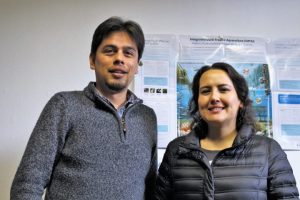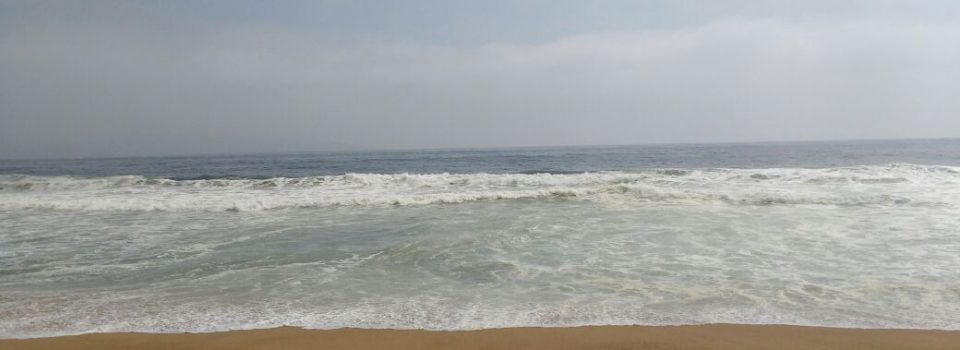Aquaculture a strategy to mitigate weather change ecological, social and economic effects in Chile
November 21st, 2017
It is one of Dr. Pablo Leal works, presented by IFOP at the Ocean acidification Latin American symposium
In Buenos Aires Argentina between October 24th and 26rd, Latin American Symposium on Ocean Acidification was held. IFOP was represented by researchers Dr. Pablo Leal and Johana Ojeda.
Dr. Leal presented the work named “Local anthropic factor is more relevant than ocean warming and acidification for microscopic stages development of Macrocystis pyrifera and Undaria pinnatifida.” And “Aquaculture as a strategy to mitigate ecological, social and economic effects of weather change in Chile”
Dr. Leal’s summaries “Local anthropic factor being more relevant than warming and acidification of the ocean for microscopic stages of Macrocystis pyrifera and Undaria pinnatifida the development“: Warming and ocean acidification can affect macroalgae physiology, producing changes in its abundance and distribution. During an 18 day experiment, microscopic stages of two brown macroalgae development exposed to a factorial combination of pH, temperature and copper was evaluated. Effects of ocean acidification and warming on the microscopic states of the studied macroalgae were minor but the presence of copper inhibited the development and maturation of gametophytes, indicating that copper pollution could have worse implications for brown macroalgae life cycle than future oceanic conditions of acidification and temperature.
“Aquaculture as a mitigation strategy for ecological, social and economic effects of climatic change in Chile“: Warming and ocean acidification can affect marine ecosystems, which could have important consequences in socio-economic activities. In this work, multispecific cultivation was proposed as a mitigation tool for ecological, social and economic effects of climate change. The need to generate basic biological knowledge about key species and to develop control policies for of coastal areas and their resources use to develop these mitigation strategies successfully was also discussed.
Johana Ojeda explained ” ocean acidification, is a process that is occurring because of the CO2 released into the atmosphere by mankind, which dissolves in seawater and forms carbonic acid, which inevitably changes sea chemistry and constitutes a global threat to organisms that live in it. In this sense, like other global processes that affect the ocean, such as climatic change, it is considered an approachable topic in future studies within IFOP’s Environment Department “.
She added that “the Symposium hosted in a same place a group of Ocean Acidification process Latin American experts, exposing and developing the theme from two angles, first, from an oceanographic point of view and second, considering organisms response to this phenomenon. Given the above, my interest in attending the symposium was to strengthen my understanding of this process, understand its interaction with other local processes such as eutrophication for example and its implications in fjord ecosystems and channels, areas that we are constantly studying, besides knowing the tools and work methodologies for its possible application and finally, establish cooperation networks with other work groups and specialized institutions “.
